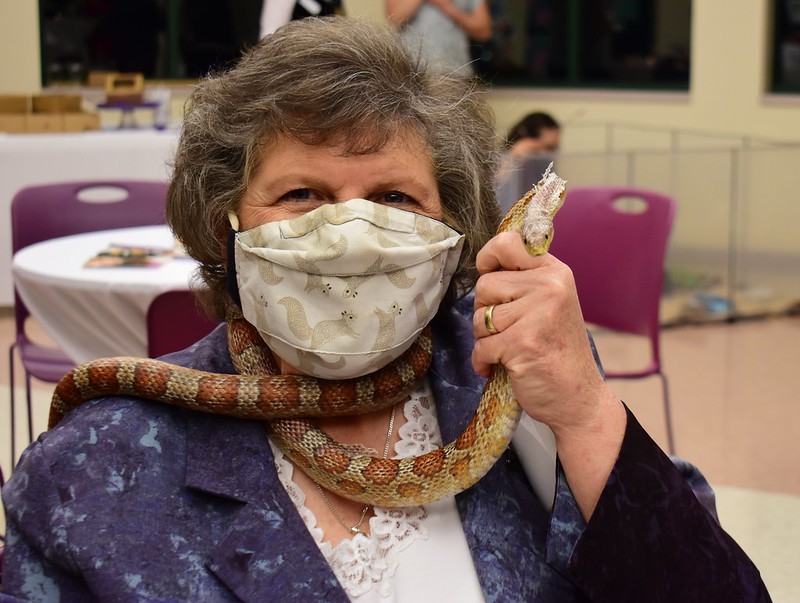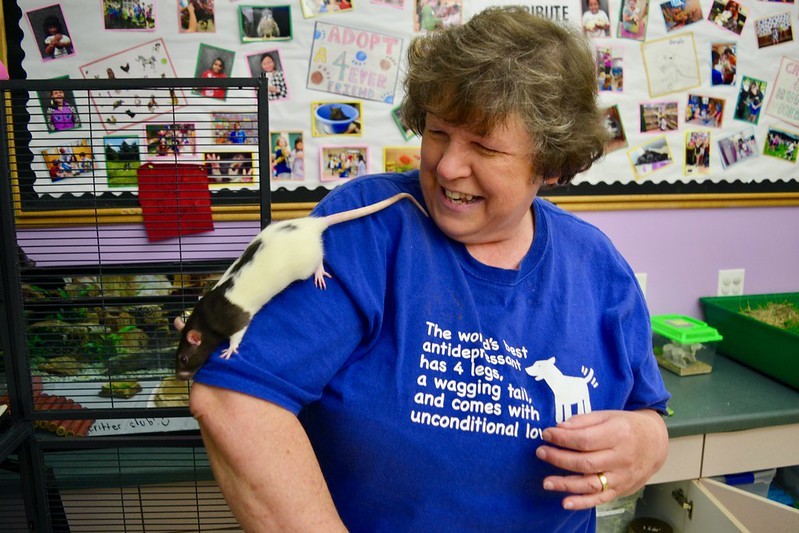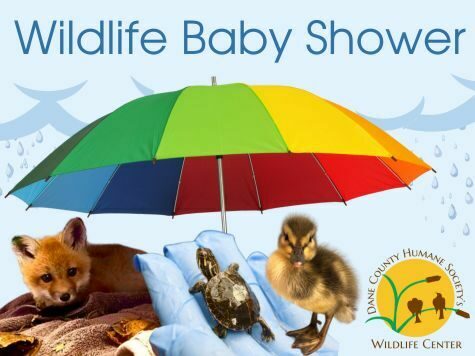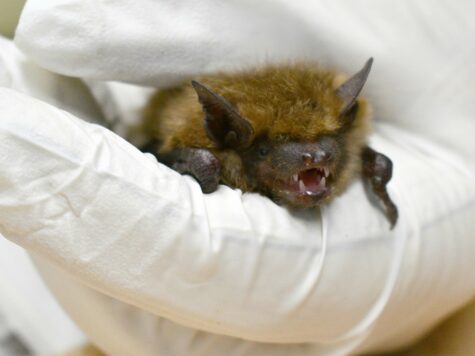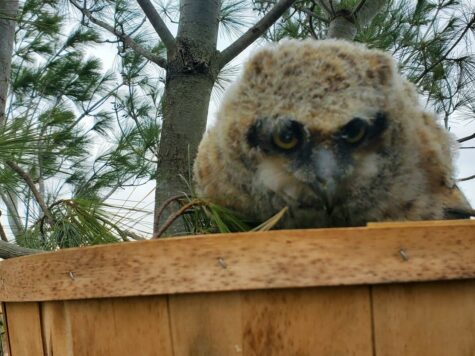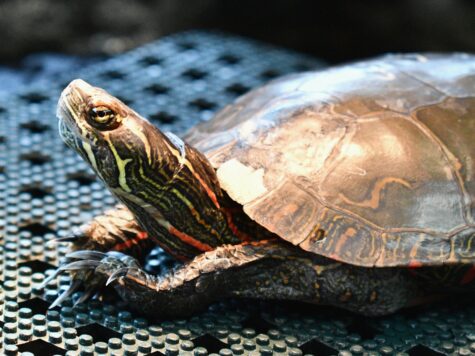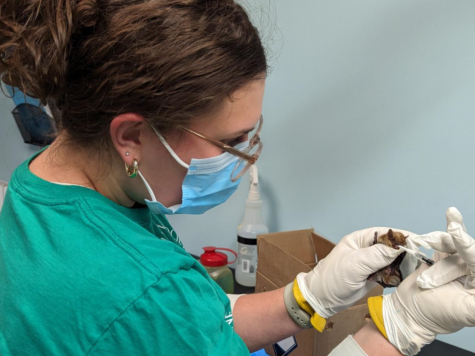Before Holly Hill-Putnam became a Constant Companion, she saw firsthand how Dane County Humane Society (DCHS) was helping companion animals and wildlife in need.
Holly started volunteering at DCHS in Animal Medical Services and Wildlife Center in February 2012. She then added more volunteer opportunities to her list, including education, orientation for new volunteers, assisting at special events, and caring for the animals that help us teach children how to care for pets. In total, Holly has put in over 16,000 volunteer hours, and she’s still going strong.
“It’s been 10 years, and DCHS has changed dramatically in that time,” says Holly. “So much of that is due to funding. There were times I wondered if we’d even be able to continue supporting local wildlife due to budget constraints.”
DCHS is a private, community-supported non-profit that is not affiliated with any government agency or national animal welfare group. That means most of our funding comes from donations. DCHS’s Wildlife Center also is not affiliated with any government agency, although it must follow regulations established by those entities. The Wildlife Center is supported entirely by the community.
Holly had been volunteering for just over a year when the financial struggles became evident, and she decided to do her part to sustain DCHS. This led Holly to become a Constant Companion, a DCHS recurring monthly donor, in July 2013.
“Becoming a Constant Companion provides a steady income stream that allows our wonderful staff to put programs in place,” says Holly, “and know that we will be able to continue them!” These are programs such as Pets for Life, which helps low-income pet owners get the supplies and veterinary care their pets need, and expanding DCHS’s Wildlife Center’s rehabilitation efforts to include more species.
The support of Constant Companions allows DCHS to adapt quickly to the changing needs of our community, and the dependable funding makes DCHS’s continued growth and evolution possible.
“Seeing all the programs that have been created all around the shelter makes me proud to be a part of DCHS,” says Holly. “Share the pride in knowing you are a part of making Madison a truly animal loving community!”
Join generous Constant Companions like Holly and be a hero to animals in need.
Lisa Bernard is the Public Relations Coordinator at DCHS.
